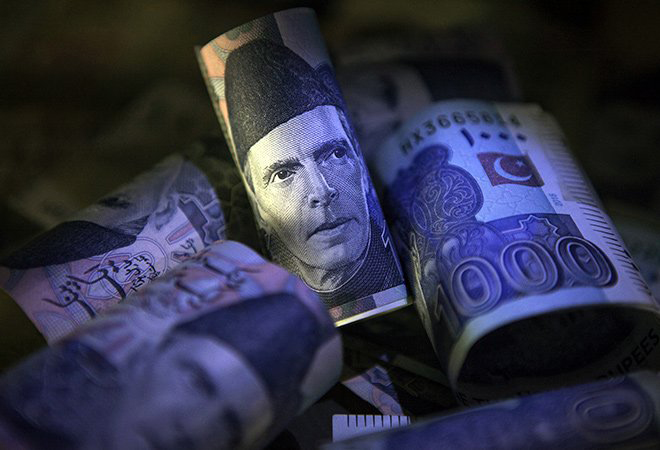The immediate positive impacts of the Stand-by agreement with the IMF have also made their way to the forex market. After making a headlong jump, dropping to almost half its value within the last 15 months, the rupee has finally seen some appreciation against the greenbacks.
It has been observed that the Pakistani rupee witnessed a significant gain against the US dollar in the interbank market following the country’s last-minute funding from the International Monetary Fund (IMF). The interbank exchange rate of the local currency closed at Rs 275.44 per dollar, on its first day of trading after the Eid holidays, reflecting a notable increase of 3.83% compared to the previous value of 285.99 on June 27. This surge in the rupee’s value occurred during the first trading session after the Eid holidays and a bank holiday.
Komal Mansoor, Head of Strategy at Tresmark, predicted that the market may stabilise around the range of 272-276 for the day, with the central bank’s guidance being instrumental in shaping currency levels.
Saad bin Naseer, Director at Mettis Global, highlighted that the accumulation of foreign exchange reserves would cause panic among those hoarding dollars. He further emphasised that this situation might lead to an increase in remittances through banking channels instead of informal means like hundi-hawala.
There was also a shortage of cash rupee due to bank holidays, which provided an opportunity for some money changers to buy dollars at rates ranging from Rs275 to Rs285. Additionally, the decision by the State Bank of Pakistan allowing banks to purchase dollars from the banking market instead of exchange companies has affected the open market’s business, as per the exchange companies.
Due to bank holidays, there was a shortage of cash rupees, which provided an opportunity for some money changers to buy the dollar at rates ranging from Rs275 to Rs285 on Monday.
The first day of open market trading following Pakistan’s Standby Agreement (SBA) with the IMF for $3 billion brought a sense of economic stability and resulted in a better value for the rupee. However, due to the bank holidays, only a few exchange companies had cash rupees available, and even those were limited. Most companies were unable to purchase dollars despite the high demand for selling.
Exchange companies reported a lack of buyers for dollars in the open market, as many banks began purchasing dollars from the banking market instead of using exchange companies, following the State Bank of Pakistan’s decision.




